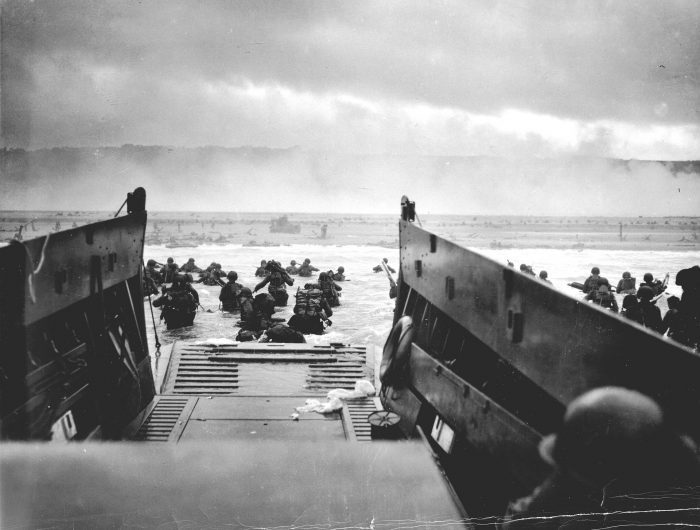By Rich Acritelli
By early July 1940, after Germany quickly defeated France, Hitler and his military leaders were photographed gazing across the English Channel.
Many feared Hitler would order an invasion against the last remaining nation in Western Europe: Britain. While his senior military leaders planned for Operation Sealion, Hitler had always feared the might of the British navy, and a full-scale assault was never carried out.
Instead, Europe suffered through four years of brutal German occupation, which included the Nazi air blitz on London and a genocide across the continent which sought the annihilation of Jews in Europe. The liberator of Nazi tyranny came in the form of a farm boy from Abilene, Kansas.
Dwight D. Eisenhower was an affable character among his fellow officers. He was a talented football and baseball player, a writer and later an aide to Gen. Douglas MacArthur. By 1941 it was now his turn to lead the effort to dismantle the German war machine and to bring the war to a successful conclusion.
Gen. Eisenhower ran his headquarters with a team-first mentality. He considered the British, French, Canadians, Norwegians, Polish and even Soviets as comrades rather than foreigners. These nations that had suffered through Hitler’s subjugation would be key elements to achieve total victory.
By the spring of 1944, the war plans were laid to invade Nazi-occupied Europe from England. Major weaponry and reinforcements of soldiers, primarily from the United States, were sent to England to reinforce Eisenhower’s Operation Overlord. To cope with the stress of planning the invasion, Eisenhower smoked over five packets of cigarettes a day.
Once living in poverty, the military commander had emerged as one of the most powerful men in the world, entrusted by President Franklin D. Roosevelt and Prime Minister Winston Churchill to change the tides of war in their favor.
By 1941, Eisenhower had grown into a dependable officer who embodied the necessary skills to work well with the Allies. A talented strategist, he was the right man for the task. Although he was not as battle hardened as Gens. MacArthur or George S. Patton, Eisenhower possessed unique attributes that aided his planning.
A graduate of U.S. Army Command and General Staff School, he was highly regarded for his writing skills and his clear understanding of fighting campaigns. Eisenhower was not only preparing an immense invasion, but a road map for the continued invasion after getting ashore. Having traveled extensively through France as a younger officer, his past experiences again proved invaluable.
Always a likable figure, Eisenhower had the unique ability to resolve conflicts amongst his own senior command. His good friend Patton understood the value of this trait for he was a gifted commander but with an uncontrollable temper.
Perhaps Eisenhower’s greatest challenge was seen through his relations with Gen. Charles de Gaulle. This renowned French leader refused to endorse the earliest speeches that called for his people to revolt against the Germans in the name of the Allies. De Gaulle was supported by the Americans and British, but he believed he deserved greater authority over the major fighting in France. Dealing with this French leader was an obstacle only Eisenhower could surmount.
In the days leading up to the D-Day invasion, terrible weather conditions threatened to further delay Eisenhower’s plans. The delays could prove to be catastrophic as the Germans were bound to learn of the true intention of this invasion, where they originally viewed Calais as the key spot that would be assaulted by this cross-channel attack.
With the weight of the invasion and outcome of the war upon his shoulders, Eisenhower ordered 1,213 naval combat ships to move across the channel. 132,000 soldiers, stocked with supplies and equipment of every kind, headed off the Normandy beaches into the interior. By the end of the day, on June 6, 1944, the final chapter of Hitler’s rule was being written as American, British and Canadian soldiers executed Eisenhower’s plans.
Today, fighting rages on in Ukraine. But the resolve of the United States should never be doubted. On the 78th anniversary of D-Day, America remains a beacon for the world, always there in the darkest hour to oppose tyranny abroad and to prevent its expansion. We must remember the example of Eisenhower, who gave us the road map for a future of peace.
Rich Acritelli is a history teacher at Rocky Point High School and adjunct professor at Suffolk County Community College. Written in conjunction with members of the high school’s History Honor Society.







